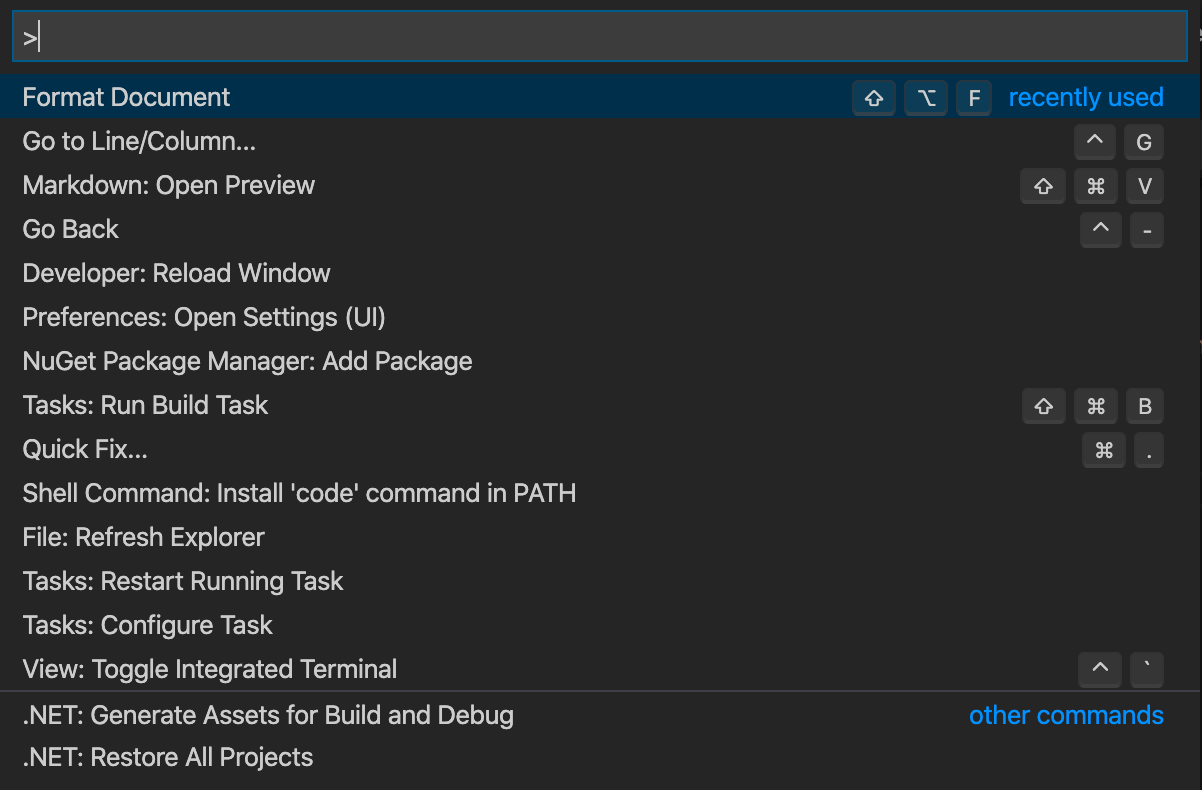Non-Obvious Tips for Buying a House - Lessons Learned as a Home Buyer
Here are oodles of non-obvious things we wished we would have known before buying a house, even some things we wish we would have done months in advance!

We are first-time home buyers purchasing a nice townhouse in a great location, and we’ve learned oodles of non-obvious things we wished we would have known before going through the process - there are even some things to do months in advance!
Here are some of the tips we’ve learned, organized roughly by time frame.
Remember, I’m not an agent, lawyer, or loan officer, and we live in Texas. Some of this info might vary by state, and always double check all this advice with a professional.
>6 months before applying for a loan

OK, let’s just be real. A house is a lot of money. You should strongly consider saving for a 20% down payment to avoid private mortgage insurance (PMI). Our loan officer described it like this:
Imagine you're driving down the highway. Roll down your window. Grab fistfuls of cash and throw them out the window. Keep driving.
That’s about what paying PMI is like.
So save for a 20% down payment if you can and also have extra cash for inspections and closing costs, which can be a lot. We blew something like $1,500 in inspections alone, but we did lots of inspections: general, AC, plumbing, air quality, moisture, and fireplace.
Let me repeat: have CASH, available for use, just sitting in your bank account, to the tune of your expected down payment, several thousand more for inspections and post-closing repairs, and then 3% - 5% of the loan for closing costs. Yes, that’s a lot of cash, but you’ll be grateful you have it.
I will add a good point made by Emily in the comments - there are occasions where it actually makes sense to not put 20% down and decide to absorb the cost of the PMI, because you’ll get into a house sooner. This might happen if your rent is high and paying both interest and PMI is still less than your rent.
>3 months before applying for a loan

Make any financial transfers (like consolidating the funds for the down payment) three months before applying for a loan. Your financing team (loan officer and underwriting) will carefully review the last couple months of transactions, and it makes their job (and subsequently yours) much tougher if there are big fund transfers in the three months before loan application.
You can apply for a mortgage individually or jointly, so if one of you has a much better credit score than the other (like how my wife’s credit score totally beats mine) and sufficient income for a loan, you might consider applying individually. However, be sure to transfer all assets to accounts with that person’s name on them. The bank won’t look at accounts that aren’t in the name of the person(s) applying for the loan, and the bank needs to see that you have sufficient assets for a down payment/closing costs. If you both have at least fairly good credit, this doesn’t matter as much.
Make sure you have access to a printer and a scanner. There will be some documents that need to be hand signed, even in this age of electronic signatures and Docusign.
Learn about and discuss what kind of a loan you’d like. We did a 15-year mortgage to have a little higher monthly payment but a lower interest rate to be done with the mortgage sooner and pay less overall interest. If you know for sure that you’re going to be somewhere for a certain period of time, like five years, an ARM loan, which otherwise would be a foolish idea, may make sense for you, but only if you know FOR CERTAIN that you will be selling the property before the interest rate unlocks and balloons to whatever the current market rate is. In the meantime you will get a super low interest-rate.
Active Searching

The people most important in the success of your transaction are the real estate agent, your loan officer, and the title/escrow agent. Now, we didn’t choose the title/escrow agent, the sellers did, but we’ve still had to work with the title company almost daily. Make sure to choose a real estate agent and loan officer you trust, who are available and responsive, and from whom you can receive sympathy and empathy. I didn’t realize how important this would be. We’re lucky to have found a great agent and loan officer.
Remember that you won’t pay for your real estate agent. The seller pays both the listing agent (the seller’s agent) and the buyer’s agent out of the (typically) 6% commission fee. This is generally true, at least in Texas, although I’m sure there are exceptions. So go find a really good agent, for free!
You can use the mortgage pre-approval process as a way to feel out a particular loan officer’s responsiveness. We would go back-and-forth with our loan officer, asking for a new letter with a new particular amount, and he would get back to us right away.
Make sure you have access to bank statements, last year’s tax return, W-2s, retirement account statements, etc. Collect and scan them and put them in a folder on your computer nicely labelled, because you’ll be sending them to a lot of people. Everybody will need to see the same documents, so once you collect them for one person it’ll be easy to send to others.
When you do your own walk-throughs, check for what kind of pipes the property has, what material the wiring is (if you can tell), as well as check for water under the sink. The general inspection should tell you all this once you have the offer down, but it’s something to keep an eye out for as you’re touring houses.
The age of the property really does matter. “They don’t build them like they used to” is a double-edged sword and goes both ways. The quality of craftsmanship might be higher in older homes, but you will have a sharp jump in risk and maintenance costs if you purchase a property older than about 1980. For example, that’s when you start having to worry about asbestos and lead-based paint.
Making an Offer
Include a cover letter with a photo. Talk about how much you enjoyed the property and how you can see yourself living there. This gives the seller a chance to get to know you. Given two equal offers, the seller will most likely pick the one where the buyers are relatable and friendly.
Contact your loan officer for a pre-approval letter exactly for the amount you’re going to offer. No sense letting the seller know you’re pre-approved for more.
Real estate agents will talk about you wanting to present a “clean” offer letter. We didn’t understand what that meant. Basically there are a whole bunch of levers you can pull on an offer letter. There are lots of things you can request that the sellers do, like provide or pay for the survey, provide a copy of the HOA agreement, make repairs, etc. Taking out some of these things will make it so that the seller has to do less work to accept your offer than another offer, and sellers like that. It’s not all about money - sometimes the appeal of your offer comes down to plain ol’ laziness. Remember, you will still be able to ask for repairs during the inspection/option period.
Put an offer in on a Monday, so you can immediately start scheduling inspections. Don’t put an offer in towards the end of the week or on the weekend, because it will be difficult to either contact an inspector or get one scheduled, and by the time you do, several days will have gone by in your option period. You need to have the general inspection completed as soon as possible!! We put the offer down on a Saturday. Bad idea. By the time Monday rolled around and inspection places were open, we had to schedule a day or two out. By the time we finally got the inspection done we were practically half way through our option period.
You’ll probably be given a choice of when to lock the interest rate for your loan. If the interest rate on the loan works with your numbers today, lock today. You don’t know what’s going to happen in the future, and it isn’t worth the stress to constantly watch the interest-rate. It’s probably not going to change substantially between the time you put an offer on a house and when you close, anyway. A better way to impact your monthly payment is to increase your down payment and avoid PMI.
After the Offer is Made
Double check flood zones, call school districts and double check the school assignments, check crime levels, go to the grocery store in the neighborhood, all in an attempt to make sure that the neighborhood is really what you want.
A valuable tip from Amanda on Facebook: “One thing that I might add would be to call the utility companies to get an estimate of what the water, electric, and gas payments would be like. They can tell you the average payment per month for the previous occupants.”
The general inspection is really important. As in, it will influence both your decision, the seller’s concessions, and the final price of the property greatly. Get a recommendation from a friend or co-worker so you get a quality inspection, don’t just find some random guy on the internet. Get it done early.
Ask for concessions as soon as possible, ideally a couple of days before the end of the option period. It’s funny how the “balance of negotiating power” tips back and forth during the time before closing. You need to be able to negotiate with the sellers while you still have the ability to walk away, while the balance is still tipped in your favor.
Recognize the leverage you have over the seller. After you’ve performed an inspection they are legally obligated (from what I heard, and maybe only in Texas) to provide that inspection to the next buyer. If the appraisal comes back low, the chances are that the next buyer’s appraisal will come back low. In both cases the seller is incentivized to make you happy so you don’t walk away.
Be genuine with the seller. You’re not trying to gouge them, you’re just trying to purchase a nice home that fits in with your financial situation and that’s in reasonable quality for the age of the property. You should be friendly with the seller through your agent, but do be assertive about your needs and wants.
So there you have it - a few things that we wish we would have known when going through the home-buying process.
Let me know in the comments any questions you have about the home-buying process or home-buying tips that you’ve found useful!



Share this post
Twitter
Facebook
Reddit
LinkedIn
StumbleUpon
Email